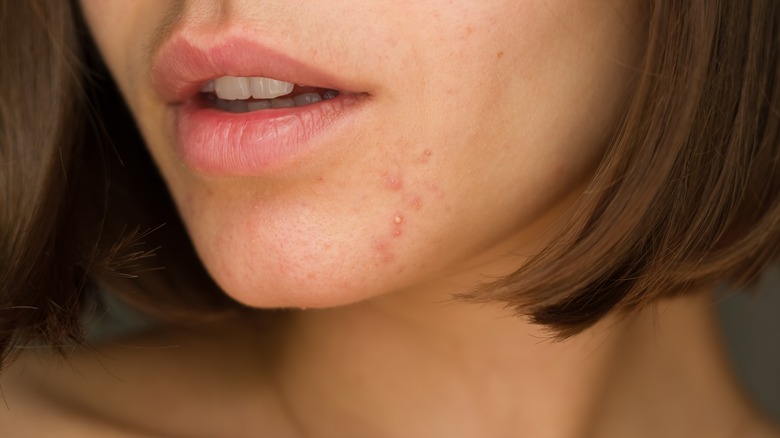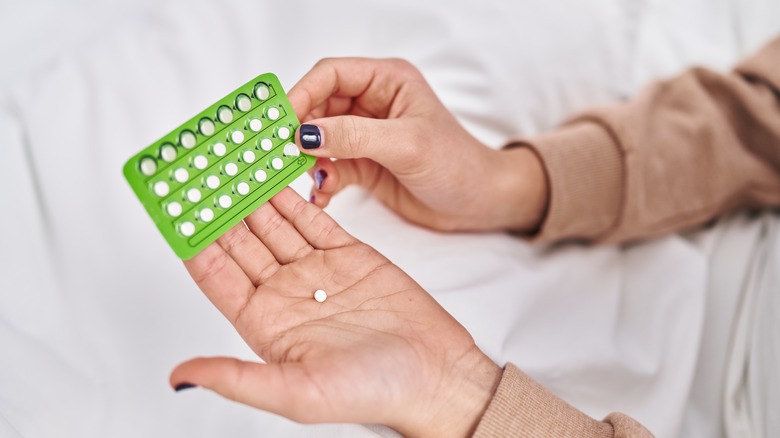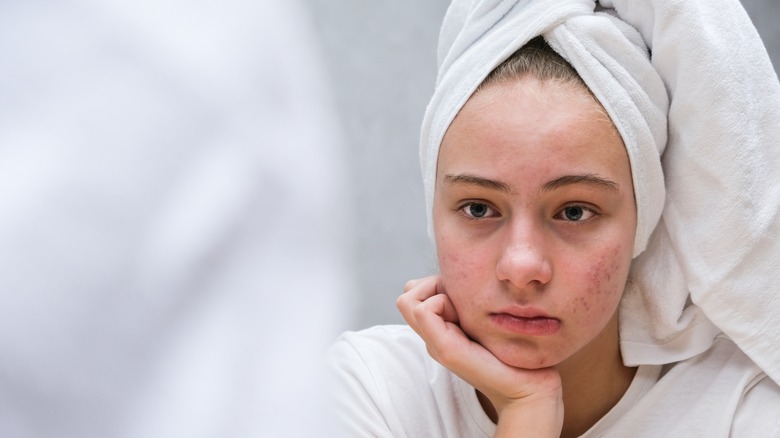What You Should Know About Accutane Interfering With The Effects Of Birth Control
When it comes to facing hormonal or cystic acne, sometimes it's best to cast the home remedies and experimental skincare products aside and go for a professional-grade treatment that is guaranteed to work. For many people, that means calling up the dermatologist and going on Accutane. The brand name for isotretinoin, a derivative of Vitamin A, Accutane clears out acne from the skin within just a few months.
Different from other forms of Vitamin A, Accutane is digestible, coming in a pill form. It works by decreasing sebum production and diminishing sebaceous glands, resulting in unclogged pores as well as less skin bacteria growth and inflammation. It's a highly effective treatment, working for people who struggle to get rid of acne using other drugs and products.
The efficacy of isotretinoin makes it a popular treatment for people who experience hormonal acne as a result of birth control. However, thanks to the many side effects of Accutane, taking birth control is a requirement for those who are sexually active and at risk of getting pregnant.
Why should you take birth control along with Accutane?
For people who rely on birth control in order to avoid pregnancy, you've probably grown accustomed to researching whether or not a new medication will decrease the effectiveness of your contraceptive. When it comes to Accutane, however, it's actually mandatory to use two forms of birth control before starting the treatment, according to Massachusetts General Hospital. This is due to the side effects that can potentially come with using isotretinoin when pregnant.
Just like other forms of retinoid, Accutane can pose a serious threat to a fetus. Within the first trimester alone, isotretinoin can cause heart and facial problems, VeryWell Family reports. Later in the pregnancy, it can harm cognitive and neuropsychological problems, increasing the risk of intellectual disabilities. Aside from creating disabilities within the fetus, Accutane creates a higher risk of having a miscarriage or stillbirth.
Before starting Accutane, it's important to have two negative pregnancy tests before taking it. If you're sexually active while taking it, take a pregnancy test every month and continue to use birth control even a month after going off of isotretinoin. In order to avoid any slip-ups, use two forms of contraceptive such as a daily pill and condoms.
Pregnancy-safe alternatives to Accutane
According to the American Academy of Dermatology, antibiotics such as azithromycin and clarithromycin are seemingly safe for pregnancy. Just like antibiotics work to kill bacteria in order to prevent it from spreading, they can effectively kill acne-causing bacteria without potentially harming your baby.
Even if it's impossible for you to get pregnant, you may want to use alternatives due to the other side effects that are present when using Accutane. The oral treatment commonly causes bone and joint pain, dry, inflamed skin around the lips, nosebleeds, and itching, burning eyes. In more extreme cases, it can cause nausea, diarrhea, suicidal thoughts, depression, vomiting, and rectal bleeding.
While certain side effects such as dry lips and itchy eyes can be managed during the few months while on Accutane, consider using gentler forms of retinoids if your acne isn't that serious. Before starting isotretinoin, discuss the risk factors and possible alternatives with your dermatologist.


